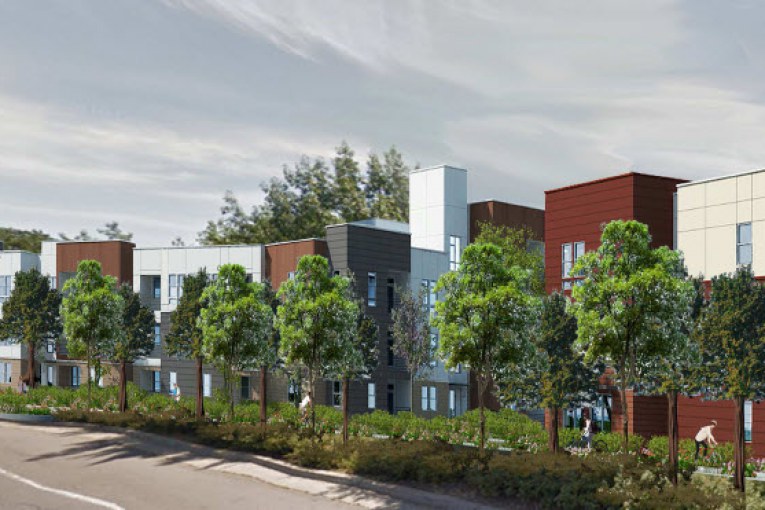
 By Matthew Palm, Jen Higley-Chapman, Don Gibson, Michael Gofman, Alex Lee and Josh Dalavai
By Matthew Palm, Jen Higley-Chapman, Don Gibson, Michael Gofman, Alex Lee and Josh Dalavai
We strongly support approval of the Sterling apartments at tonight’s City Council meeting. This project will provide needed homes for hundreds of students and 38 working families. Davis has a vacancy rate on par with San Francisco. This project will make a modest but meaningful dent in the need.
Mutual Housing California will build the affordable family housing on site. As an established and respected nonprofit builder, Mutual Housing provides safe, affordable homes for working families and encourages strong, engaged communities through resident leadership and programming for thousands of families. Beyond the $100,000 in traffic improvements, the developer provided an additional, voluntary $2,025,000 contribution towards making the affordable component of the project feasible. This is critically important because traditional affordable housing funding sources like HOME, CDBG and Section 8 are on the chopping block in Washington D.C. This project’s blend of land and funding for affordable housing is a model for how Davis can leverage the city’s inclusionary program to ensure land set aside for inclusionary housing is actually built in an era when federal funding sources are vanishing. Demanding this project go on campus deprives the City of Davis millions of dollars and land that will put a roof over 38 of our families most in need.
The critics’ biggest concern is the design of the homes aimed at students. What this criticism fails to account for is that the shortage of homes available for families is due to the shortage of housing for students. Together, the city and university have created a housing market that is so hot it is more lucrative for many investors to convert single family homes into mini-dorms than it is to sell to working families. By opposing Sterling, critics are all but ensuring the student population that is not being accommodated for simply outbids working families. Sterling reduces the pressure on our market and sets aside 38 homes for working families.
The transportation component is a major reason to support this project. Bicycle congestion at Pole Line and 5th can easily be remedied by upgrades to cycling infrastructure. Adding a lane to Interstate 80 to ensure thousands of new drivers can commute to Davis from Sacramento would be prohibitively expensive. The campus travel survey data demonstrates students at this distance from campus will mostly bicycle or take the bus. Some have complained the bus system may not be prepared for this. If so, we hire more bus drivers. Inducing more residents to drive in from Sacramento by rejecting housing will only make our regional problems worse.
Housing sits at the nexus of sustainability, public health, economic growth and good schools. Stress induced by our housing crisis is taking a toll on students and families mental and physical health while costing California billions of dollars in lost productivity. Our schools are importing students because families with children have been bid out. Our roads will continue to clog until we locate housing a bike or busable distance to work and school. Sterling is a step in the right direction.
Matthew Palm, Jen Higley-Chapman, Don Gibson, Michael Gofman, Alex Lee and Josh Dalavai. Matt is a young professional who works in housing. Jen is a single parent and resident leader at Mutual Housing. Don Gibson is a PhD Candidate and the chair of the ASUCD-GSA Joint Housing Task Force Michael Gofman is a freshman and senator of ASUCD. Alex Lee is a senior and the former President of ASUCD. Josh Dalavai is the current president of ASUCD.

We, as in Matthew Palm, Jen Higley-Chapman, Don Gibson, Michael Gofman, Alex Lee and Josh Dalavai, are offering to hire more bus drivers? Are they buying new buses too?
Gee, thanks.